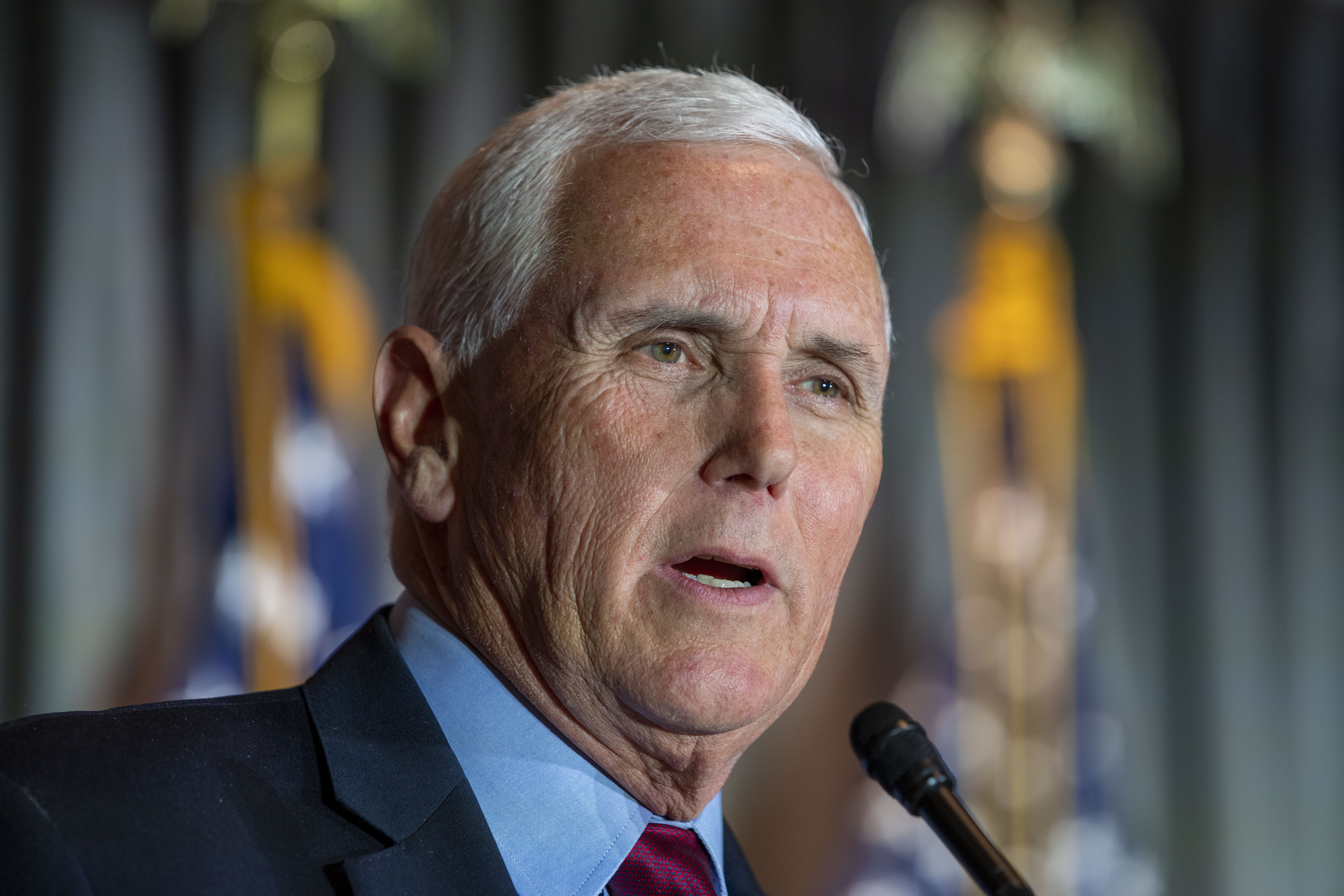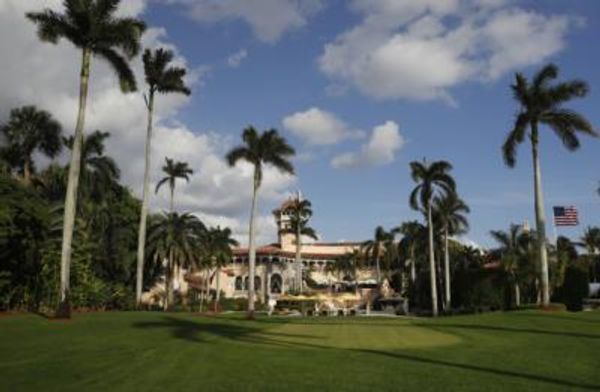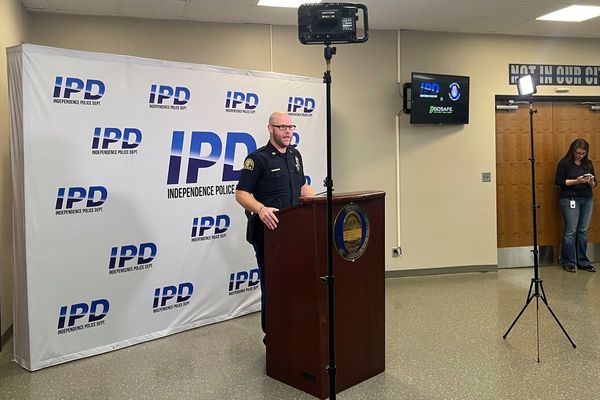
The Friday after Jan. 6, 2021, then-Vice President Mike Pence sat down for his daily devotions, thumbed his Bible to the New Testament and James 1:19, and read these words: “Be quick to listen, slow to speak and slow to become angry.”
Pence wasn’t slow to anger. In fact, he was plenty angry, as he wrote in his 2022 memoir "So Help Me God." But he was slow to speak.
More than two years after those devotions, that still lingering anger over Jan. 6 burst out into the open. In remarks that turned from comedic to biting, Trump’s ever-loyal No. 2 broke from his former boss more sharply than any candidate in the GOP field so far.
“History will hold Donald Trump accountable for Jan. 6,” Pence told hundreds of journalists at what is typically a jocular white-tie affair. “Make no mistake about it: What happened that day was a disgrace, and it mocks decency to portray it in any other way. President Trump was wrong. His reckless words endangered my family and everyone at the Capitol that day.”
Pence had used similar words to talk about Trump in his book — writing that his former boss’ “reckless words had endangered my family and all those serving at the Capitol.”
But his advisers saw the Gridiron dinner as an opportunity not just to echo those sentiments but to amplify them. They also believed it would help Pence win over his most skeptical audience these days: Washington insiders and journalists who have given him short shrift in the early 2024 primary.
“This was a different audience for him,” said Marc Short, Pence’s former vice presidential chief of staff and his senior adviser.
Pence world has long believed that the former congressman and Indiana governor could occupy the adult-in-a-room 2024 lane, in that he is uniquely positioned to speak truth to power now that he is free of the constraints of the vice presidency.
“Mike is in a different place where he can be sort of free and liberated in ways that I don't think others in the field are,” Short said. “And so I'm not looking at it as to where he is at this moment. I believe that he's got a good pathway forward.”
One person close to Pence, granted anonymity to speak without authorization from the nascent campaign, noted that Pence has more room to grow among Republican primary voters than a rival like Florida Gov. Ron DeSantis.
DeSantis, the person close to Pence said, has sky-high expectations as a “combination of Ronald Reagan and Willie Nelson and Bono all wrapped up into one. But he's everything to everybody right now, because nobody really knows him.” Pence, the person added “is almost on the flip side of that. Everybody thinks they know him. They think they have an expectation of who he is. And then when they meet them, they're like, ‘that's not what I was thinking. He's funny. He's personable. He's nice.’”
Whether the GOP primary electorate wants someone who is funny, personable and nice remains to be seen. Trump’s electoral success was the antithesis of that. DeSantis’ allure is owed, in large part, to the fights he’s waged with his political enemies.
Pence’s inner circle sees the 2008 campaign of the late Sen. John McCain (R-Ariz.) as a template. Then, much as Pence is now, McCain found himself written off by other competitors — deemed a relic of an outdated type of politics as he rode around on the Straight Talk Express. They point out that as a congressman, Pence frequently freelanced Fox News hits and engaged in banter with reporters in wide-ranging hallway interviews before he became more scripted as a governor, and later, as vice president.
Those close to Pence are trying to help him recapture some of that more freewheeling approach, making sure that his campaign events include fireside chats and not taking a de facto position that the press is the enemy.
Pence — who joined Rep. Adam Schiff (D-Calif.) in 2006 to launch the Congressional Caucus for Freedom of the Press— offered as much on Saturday night. “We were able to stay at our post in part because you stayed at your post,” he told reporters who covered the attack on the Capitol. “The American people know what happened that day because you never stopped reporting.”
But there are limits to how far Pence will go. While he called it critical to be transparent about what happened on Jan. 6, he continues to fight a subpoena to testify about that day — a stance he has argued is based on protecting the separation of powers as president of the Senate. His criticism of Trump’s actions around the insurrection have not been echoed by any other major candidate in the field. And while the Gridiron remarks were harsh, they were not done with a camera rolling — though Pence’s advisers disputed that played into their calculation in attacking Trump.
Fresh off his Gridiron appearance, Pence will campaign in New Hampshire on Thursday and Iowa on Saturday, two early Republican primary states on which he has lavished attention, along with South Carolina. In particular, his aides are eyeing recreating the coalition that buoyed Sen. Ted Cruz (R-Texas) — and before him then-Arkansas Gov. Mike Huckabee — to Iowa caucuses victories in 2008 and 2016.
“If there are 150,000 people who caucus, and I'm able to get him in front of 150,000 people one-on-one, do I have a chance to win?” the person close to Pence said. “I would tell you absolutely, unequivocally, yes.”







